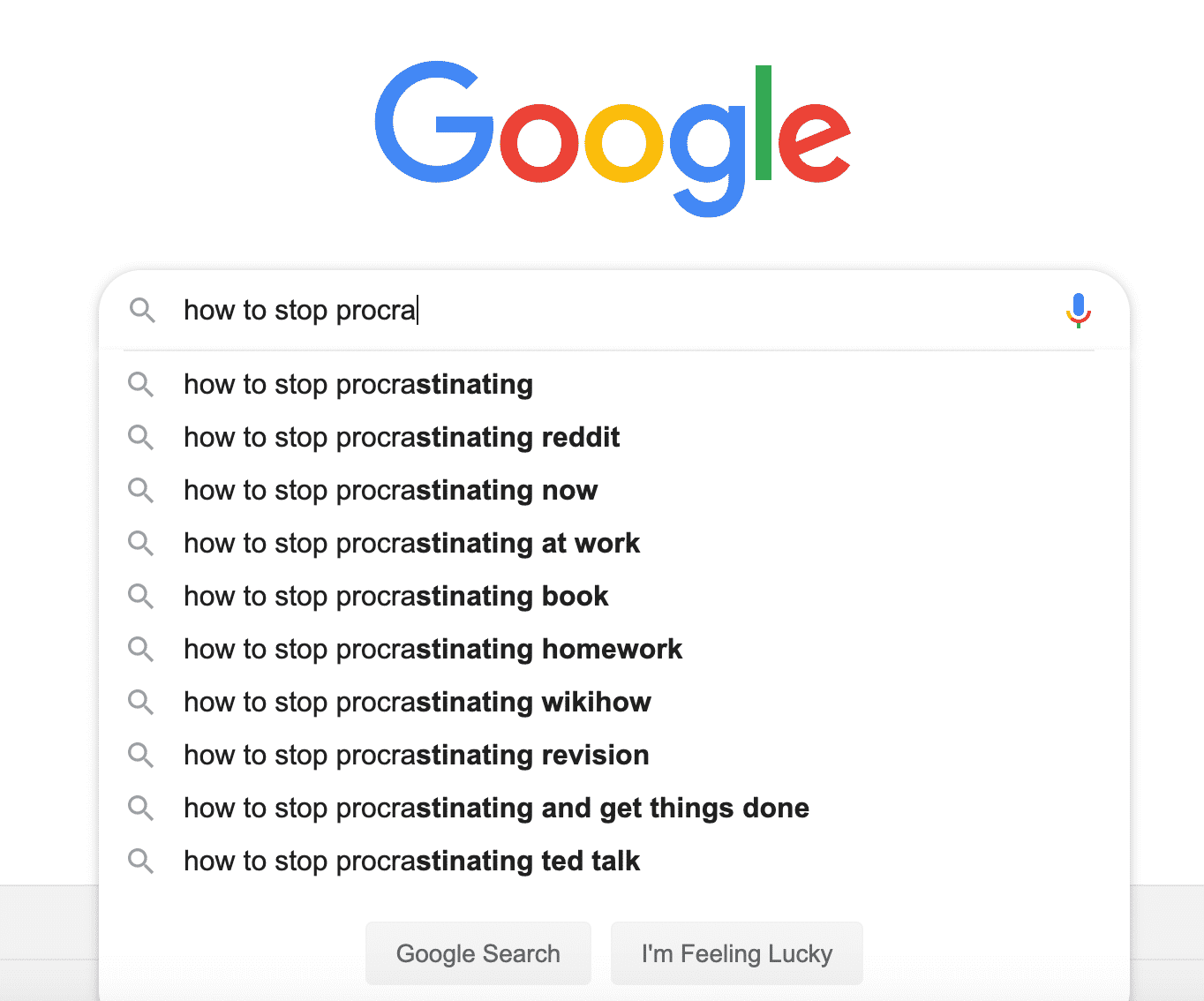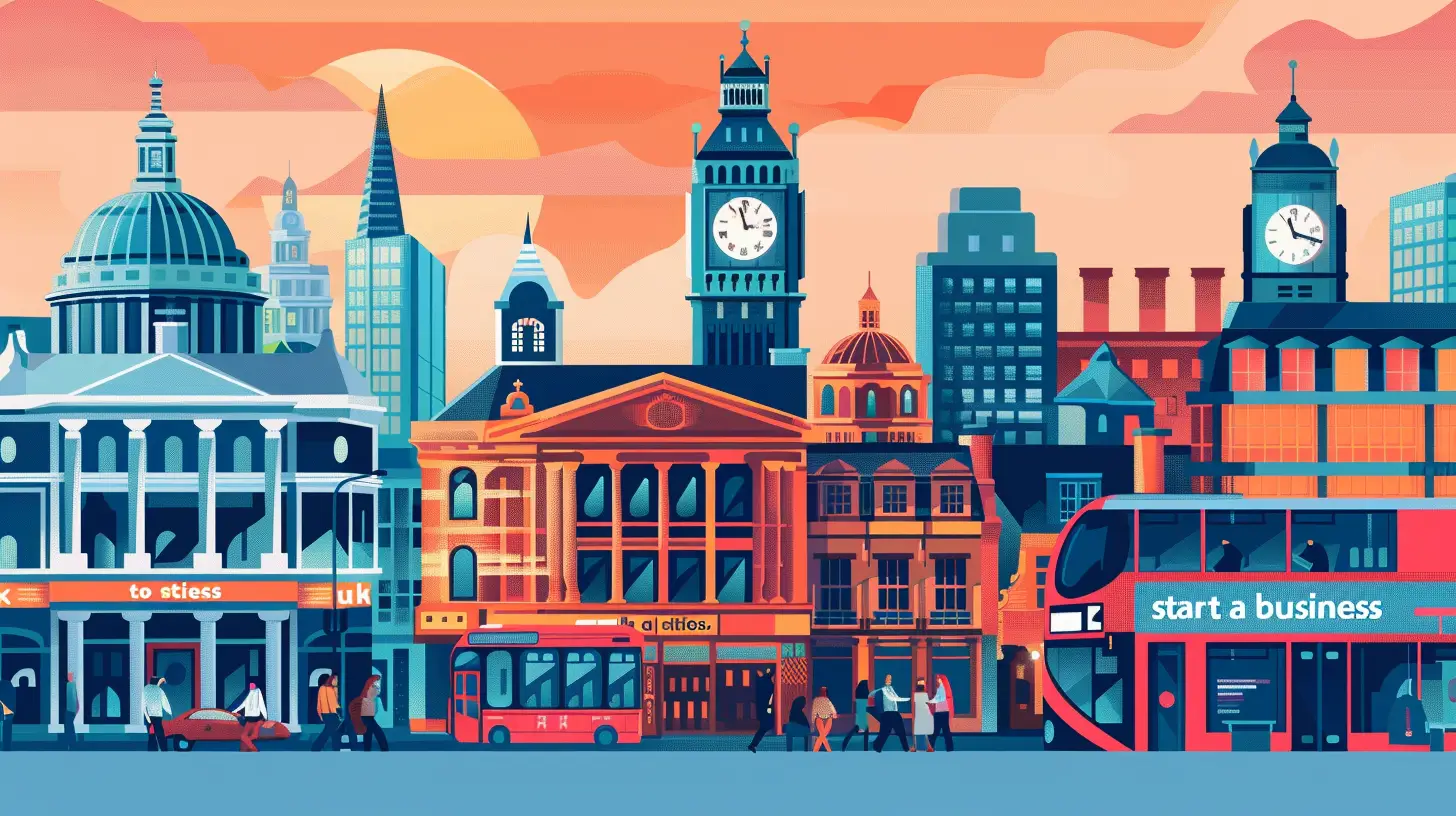Procrastination. The single biggest killer of my working day on occasion. And a couple of years ago, the problem was much worse. Then I started to research the topic and try different tactics to give me the kick up the backside I needed.
So I want to share what’s worked for me with you in case it might be able to help you too.
But first, want the quick headline figures? Here’s our top findings from compiling statistics about this issue. For further detail, read within:
- 84% of us are affected to some degree by procrastination
- 1 in 5 of us procrastinates every single day
Procrastination Statistics – How Many of us Procrastinate?
It’s not just you.
We’re our own worst critics, so it’s tempting to think that we’re the only ones struggling to get our heads into the game. But procrastination is a problem that affects most of us.
We recently surveyed 1,000 adults in the UK and asked the following question:
How often do you procrastinate? (i.e put off a task you need to do either by doing something perceived as more enjoyable, by doing nothing or by doing something unrelated)
A question put to 1,000 adults in the UK between 6th and 8th January 2020 using Google Surveys
Here’s what 1,000 people told us in January 2020:
Just 15.6% of people claim never go procrastinate. In other words, more than 84% of the population has experience of putting off those all important must-do tasks:
- 14.4% admit to procrastinating rarely
- 27.4% do so sometimes
- 22.1% do so often
- 20.5% procrastinate daily
That’s quite a big deal. For 1 in 5 of us, procrastinating is something that affects our lives and work daily. And for 70% it’s an occurrence that happens “sometimes” or more frequently.
In other words, it’s human. It’s not you just. It’s not just me. Almost everyone you know will have some experience of putting things off.
Men and women are affected loosely the same and across all age ranges, procrastination is something we all deal with.
Search Figures – Procrastination

And that is far from an exhaustive list. A fuller list of almost 600 keywords exported from kwfinder.com can be found here for those interested.
So, what on Earth do we do to stop procrastinating?
We’ve established that procrastination is a problem affecting the vast majority of us whether in our “life admin” tasks or running our businesses.
Particularly when running your own business, your productivity and ability to maximise your time is absolutely imperative. So what can we actually do to stop procrastinating and get more our of our time?
I’m no psychology expert…
But I do have plenty of practical experience in dealing with this particular demon. I run a service based business. In other words, the only thing I can sell is time and if I’m procrastinating, I’m losing time.
I’m what I call a “busy procrastinator.” I’ll do work related tasks that I perceive less enjoyable instead of the less enjoyable work related tasks. That’s my particular type of procrastination and I’m much better at nipping it in the bud these days.
But a bit of bad news, procrastinators. A study published in the Psychological Sciences Journal suggests that procrastination is a trait you generally have for life. Don’t expect to shake it off. This is very much in keeping with my own findings, whereby I think I’ll be a natural procrastinator in the long term but I’ve built habits now to catch it and stop it before it becomes a problem.
Write down what you do instead of the thing you need to do
I started by writing a list of all the things I find myself doing when I should be doing something higher priority. The would typically fall into two categories:
- Checking pointless things like social media!
- Doing other lower priority work things. This is the most common way I put things off and I find that I’ll typically favour quick tasks (things I can finish in an hour or less)
Now I had a list of the things I preferred to do, I was more aware of myself doing it. That helped initially with simply catching and stopping myself. But then I went one step further and started reworking my day and the way I structure it in order to minimise the risk of my doing so.
Improve Your Concentration and Focus
For me, I procrastinate significantly more when I’m struggling to focus in general. It’s a problem I had when studying growing up and one I still have today. If I lose concentration, I put off the things I need to do. There are a variety of natural ingredients and supplements to help with brain function and concentration. But equally, I find that getting outside for a break and a walk helps me to return to my tasks with a renewed sense of focus. And I generally also find my focus is better when I’m exercising regularly.
Work out when you work best
I then find myself productive again in the evening for a couple of hours.
So I’ve structured my day accordingly. The longer tasks (those I would normally procrastinate with) are tasks I now allocate my mornings too. My afternoons are for calls and meetings.
Pomodoro Technique
I also started working in short high concentration stints using a method known as the Pomodoro Technique.
In brief, this method requires you to work in 25 minute stints with no other distractions, followed by a 5 minute break.
This all but eradicates my distractions. Knowing I have just 25 minutes to focus helps keep me focussed. It seems like less of a task.
Written To Do Lists

I use a brilliant tool called Plutio for managing tasks electronically and delegating tasks within my team. But (and I have no idea why) I still find I need a handwritten list every single morning. So I start my day by writing down the things that I must get done that day.
It helps me focus on the tasks at hand. And I honestly get a bizarre kick from physically tick off something from a list.
Breaking Bigger Tasks Down
When I looked into the things I do instead of the bigger tasks at hand, I found that I would favour smaller tasks over bigger ones. My theory is simply that they’re less over-facing.
So I began splitting out big projects into several smaller tasks and I work on these tasks, wherever possible, using the Pomodoro Technique.
So, in short…
Try to understand how you procrastinate. Break bigger tasks down into smaller ones. Work in your most productive hours.
Easier said than done, I know.
Other Resources
I mentioned already that I’m no psychologist. But I think understanding the psychology behind procrastination is important. And there are some really in depth resources both online and in print around the topic. Here are some I’d recommend:
- Ph.D Psychology expert, Ellen Hendriksen on stopping procrastination
- Nick Wignall on How to Stop Procrastinating
- ‘The Now Habit’ book by Neil Fiore











